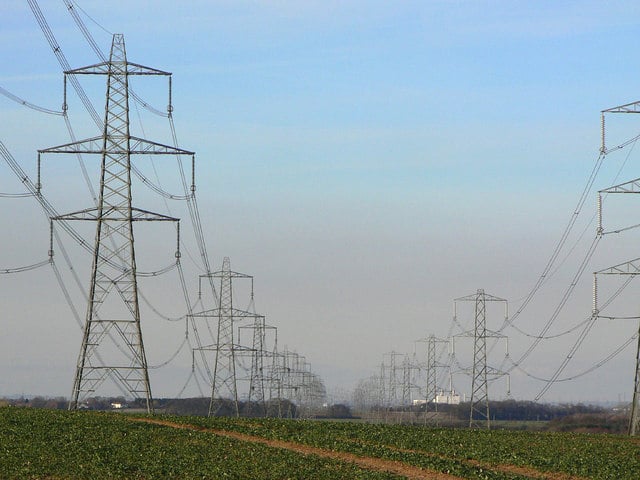New grant funding has been awarded to an energy demand response project using machine learning and artificial intelligence to manage a portfolio of storage assets and provide real-time energy reserves to the grid.
A Knowledge Transfer Partnership (KTP) grant worth £98,400 has been awarded to Upside Energy and Heriot-Watt University in Edinburgh which will be used to fund a researcher over two years to grow the company’s algorithms for grid prediction and demand response portfolio management.
Upside Energy’s Virtual Energy Store aims to relieve stress on the grid by managing a number of distributed storage resources to reduce reliance on the spinning reserve capacity provided by traditional power stations.
The energy start-up’s cloud service currently coordinates batteries and other devices across around 40 sites but has the potential to manage thousands more across a broad portfolio of technologies, including small batteries within uninterruptible power supplies (UPS), electric vehicles and solar PV.
Upside will now work with Heriot-Watt University to optimise its existing selection of control algorithms and how they are utilised in different scenarios using the university’s specialist skills in machine learning and artificial intelligence.
Dr Graham Oakes, founder and chief executive of Upside Energy, said: “This is a really exciting project. Both because machine learning is going to be fundamental to how Upside evolves its algorithms and hence delivers growing value to the energy system and wider society, and because it builds from the longstanding relationship that we have been developing with Heriot-Watt University.”
Dr Valentin Robu from the university added: “Demand response is emerging as a key technology to assure the stability of next-generation power grids, and there is an increasing need for smart control strategies that enable distributed energy storage assets to perform demand response.
“Techniques developed in the machine learning and distributed artificial intelligence communities will have an increasing role to play in enabling these efforts.”
Upcoming commercial launch
In addition to the new funding for the researcher, who is currently being sought through a newly launched recruitment process, Upside Energy will officially launch its commercial service later this quarter.
The company signed a firm frequency response (FFR) bridging contract with the system operator in November and is currently qualifying its assets before launching in February / early March.
It will begin by providing initial service to large batteries at Sheffield and Manchester Universities before seeking to take advantage of National Grid’s decision to lower the minimum entry point for its main frequency response tendering market from 10MW to 1MW from April.
The company will seek to build its access to batteries and other smart devices, such as intelligent hot water tanks or businesses’ reserve power supplies, by offering a second revenue stream in the form of frequency response.
Speaking to Clean Energy News today, Oakes explained: “Most businesses somewhere have got batteries, they’ve got their uninterruptible power supplies that are backing up their network. What we’re saying is we can use a small percentage off the top of those batteries and their spare capacity.
“There’s quite a few people that are interested because it’s getting them a revenue stream on an existing asset, so its money for free, and also its an environmental benefit because we’re displacing spinning reserve from traditional fossil fuel plant.
“Organisations that have strong sustainability goals find this quite attractive and we’re [also] giving them a way to monitor the battery health on their systems and that’s often very attractive to them.”






